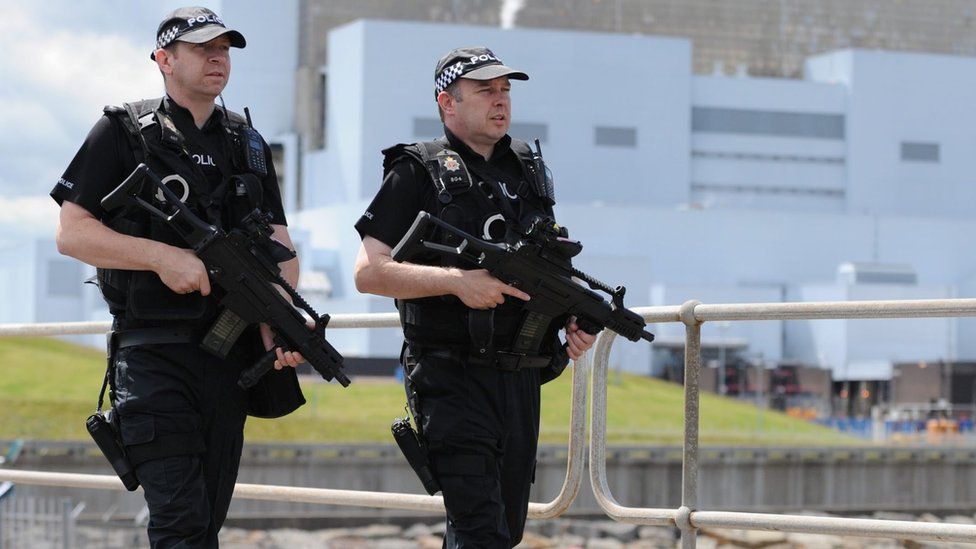Civil nuclear police lose pension battle
- Published

Representatives of a police force which protects British nuclear sites have lost a High Court challenge over a new pension scheme.
Most UK police can retire at 60, but new rules mean Civil Nuclear Constabulary (CNC) officers will have to work to 65 in future.
The Civil Nuclear Police Federation (CNPF) said it has been left "dismayed" and wants ministers to "intervene".
There are some 1,250 CNC officers guarding nuclear sites around Britain.
The CNPF has said officers could not fully protect the public from terrorism if they worked beyond 60.
The changes to the pension ages for the force were brought in as part of the Public Service Pensions Act 2013.
'Distinct differences'
The standard retirement age for almost all police forces is 60, with many able to leave on a full pension in their 50s.
But under the new laws affecting public service workers - due to take effect next April - CNC officers will have to work until they are 65, and eventually 68, to receive their pension.
The CNPF had asked the High Court to rule that its officers should be exempt from the retirement age rise.
That claim was contested by the Civil Nuclear Police Authority (CNPA).
But the case was dismissed at the High Court in London on Wednesday by Mrs Justice Nicola Davies.
CNC officers - almost all of whom carry firearms - protect nuclear sites and nuclear material in transit across the UK.
The Public Service Pensions Act 2013 created an exemption for those working for a "police force" but the judge said, in legal terms, the CNC officers were not "members of a police force" - unlike almost every other police officer in the UK.
She said the CNC was a police force in the "wider and colloquial" sense but there were "distinct and distinguishing differences" compared to forces governed by the Home Office.
Age concerns
She pointed out that the CNCPA, which had opposed the courtroom challenge on legal grounds, shared the CNPF's view that 60 would be a better retirement age for policy and operational reasons.
But she said the High Court was "not concerned" with policy arguments - the "sole issue" was whether the CNC was a police force as defined in law by the new Pensions Act.
In her ruling the judge referred to comments made by lawyers representing the government that "no final decision" had been made on the terms of the CNC's future pension scheme.
CNPF chief executive Nigel Dennis has said it is almost physically impossible for a CNC officer to serve beyond the age of 60.
Speaking after the ruling, he said the court's decision left ministers with a "major headache".
"If we cannot get a more reasonable decision then I suspect an imposed unattainable retirement age will soon lead to difficulty in recruiting and in retaining our highly trained police officers."
- Published24 August 2016